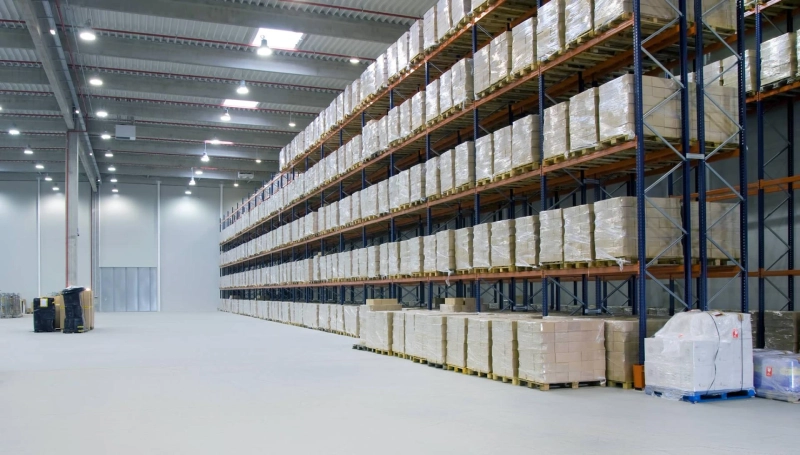As the owner of a burgeoning business, securing adequate storage space is paramount. Amidst the array of options, opting for a sizable warehouse for rent can be a game-changer. Offering ample room and adaptable lease terms, a large warehouse provides the flexibility essential for accommodating your evolving requirements. Beyond mere storage, it presents a host of operational perks, enhancing efficiency, trimming costs, and fortifying security measures. The expansive confines of a warehouse enable streamlined organisation and inventory management, facilitating smoother operations. With sufficient space at your disposal, you can optimise workflows, minimising clutter and maximising productivity.
Furthermore, the scalability inherent in a large warehouse empowers your business to scale up operations seamlessly, aligning with growth trajectories and market demands. In terms of cost-effectiveness, finding an appropriate Warehouse for Lease in Wisconsin eliminates the hefty upfront investment associated with constructing or purchasing a dedicated storage facility. Moreover, shared infrastructure and resources often translate to lower overheads, bolstering your bottom line. Enhanced security measures inherent in warehouse complexes provide peace of mind, safeguarding valuable assets and inventory from potential risks. However, there are a few considerations every business owner needs to look for to make a formed decision.
Key Factors that Help Business Owners Make an Informed Decision
Space Requirements: Assessing the precise spatial needs of your business is crucial. Consider factors such as current inventory volume, anticipated growth, and the nature of your products or equipment. A detailed understanding of your spatial requirements ensures that you lease a warehouse with adequate room to accommodate your operations comfortably, both now and in the foreseeable future.
Location and Accessibility: The geographical location of a warehouse can significantly impact logistical efficiency and customer service. Analyze proximity to suppliers, distribution networks, and target markets. Additionally, evaluate transportation infrastructure, including road networks, ports, and airports, to ensure seamless connectivity. Opting for a strategically located warehouse enhances supply chain agility and minimizes transportation costs.
Lease Terms and Flexibility: Scrutinize lease agreements meticulously, paying close attention to terms, conditions, and flexibility clauses. Evaluate factors such as lease duration, rental escalation clauses, and options for expansion or contraction. Negotiating favourable lease terms tailored to your business needs can offer financial savings and operational agility.
Infrastructure and Amenities: Assess the warehouse's infrastructure and amenities to ascertain compatibility with your operational requirements. Consider features such as ceiling height, floor load capacity, docking facilities, and climate control systems. Access to amenities like office space, conference rooms, and onsite security services can further enhance operational efficiency and employee satisfaction.
Cost Analysis and Budgeting: You conduct a comprehensive cost-benefit analysis to evaluate the financial implications of leasing a warehouse. Factor in not only rental expenses but also additional costs such as utilities, maintenance, taxes, and insurance. Compare different leasing options to identify the most cost-effective solution that aligns with your budgetary constraints and long-term financial objectives.
Security and Regulatory Compliance: Prioritize the security and regulatory compliance standards of prospective warehouse facilities. Assess security measures such as surveillance systems, access controls, and fire suppression systems to safeguard your assets and ensure compliance with industry regulations and safety standards. Choosing a warehouse with robust security protocols mitigates risks and fosters a secure operating environment for your business.
The Bottom Line:-
To sum up, informed decision-making regarding warehouse leasing requires careful consideration of multiple factors. From space requirements and location to lease terms, infrastructure, costs, and security, each aspect plays a crucial role in ensuring the suitability and success of the chosen facility. By meticulously assessing these factors, business owners can optimize operational efficiency, minimize expenses, and mitigate risks. Ultimately, selecting the right Industrial Property for Rent in Wisconsin Rapids aligns with the company's growth trajectory, enhances supply chain agility, and fosters a secure and conducive environment for business operations. This contributes to improving the overall business efficiency and growth in the long run.



